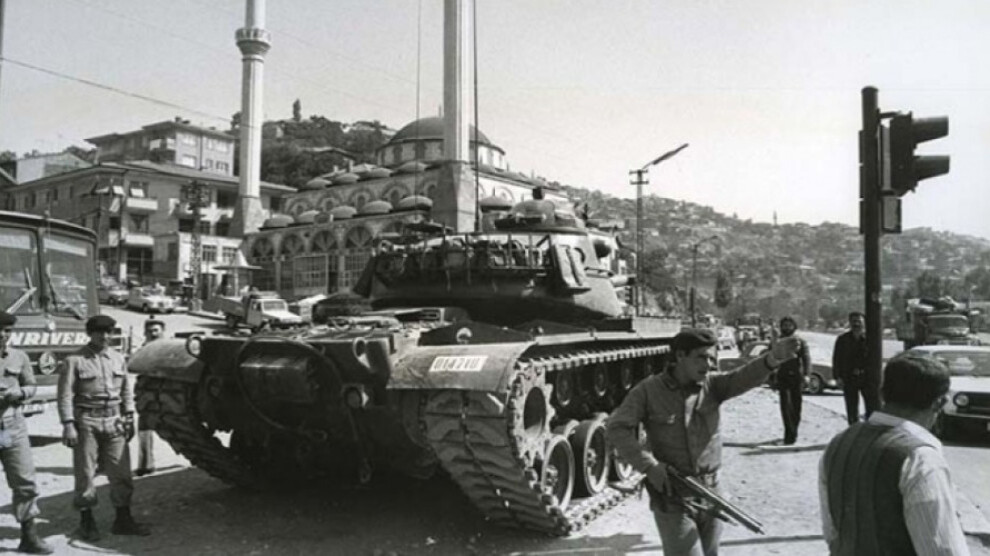12 September 1980: The military coup continues today
Today marks the 41st anniversary of the most violent of military coups suffered by Turkey in the XX and XXI centuries.
Today marks the 41st anniversary of the most violent of military coups suffered by Turkey in the XX and XXI centuries.

Turkey suffered various military coups: 27 May 1960, 12 March 1971, 12 September 1980, 17 April 1993, 28 February 1997, 27 April 2007. In the past years, this process of soft coups is continuing under Erdogan.
On 12 September 1980, a National Security Council which brought together the chief of General Staff, general Kenan Evren, and chiefs of staff of army and security forces took power by proclaiming a state of siege throughout the country. Politicians, from Ecevit to Demirel, Erbakan, Turkes are arrested, the National Assembly is dissolved and the activities of associations and trade unions are banned. The junta extends to a retired admiral, who becomes Prime Minister, Bulent Ulusu.
In the eight and a half months that followed the massacre of Maraş, in late December 1979, the dead were at least 3856. That of September 12, 1980 was the third coup in Turkey in thirty years. The first was that of May 27, 1960, the second that of March 12, 1971. Between 1971 and 1984 violence and repression against the Kurds and against the left reaches its peak. A generation is essentially destroyed.
The tragic outcome of the 12 September coup:
650,000 people were under arrest.
1,683,000 people were blacklisted.
230,000 people were tried in 210,000 lawsuits.
7,000 people were recommended for the death penalty.
517 people were sentenced to death.
50 of those given the death penalty were executed (26 political prisoners, 23 criminaloffenders and 1 Asala, Armenia militant).
The files of 259 people, which had been recommended for the death penalty, were sent to the
National Assembly.
71,000 people were tried by articles 141, 142 and 163 of Turkish Penal Code.
98,404 people were tried on charges of being members of a leftist, a rightist, a nationalist, a conservative, etc. organization.
388,000 people were denied a passport.
30,000 people were dismissed from their firms because they were suspects.
14,000 people had their citizenship revoked.
30,000 people went abroad as political refugees.
300 people died in a suspicious manner.
171 people died by reason of torture.
937 films were banned because they were found objectionable.
23,677 associations had their activities stopped.
3,854 teachers, 120 lecturers and 47 judges were dismissed.
400 journalists were recommended a total of 4,000 years imprisonment.
Journalists were sentenced to 3,315 years and 6 months imprisonment.
31 journalists went to jail.
300 journalists were attacked.
3 journalists were shot dead.
300 days in which newspapers were not published.
303 cases were opened against 13 major newspapers.
39 tonnes of newspapers and magazines were destroyed.
299 people lost their lives in prison.
144 people died in a suspicious manner in prison.
14 people died in hunger strikes in prison.
16 people were shot while fleeing.
95 people were killed in combat.